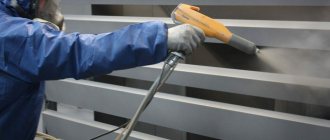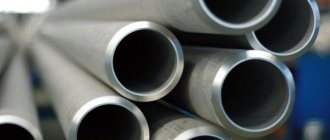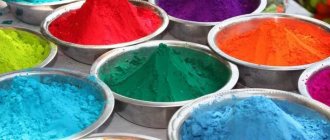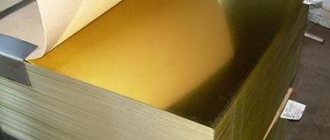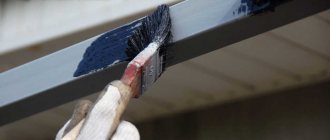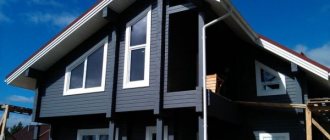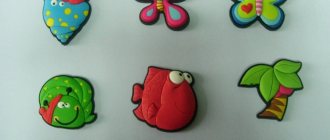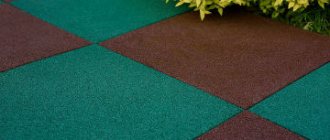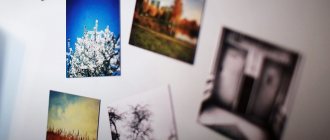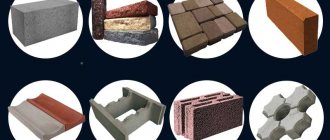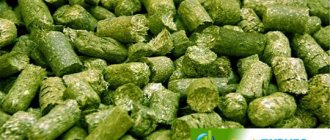Powder coating is becoming increasingly popular today. What is it? This is a modern technology designed to produce high quality decorative and protective coatings. The work uses polymer powders (hence the name “powder”). They turn into coating due to exposure to high temperatures. Because of this peculiarity of the procedure, powder coating of metal and glass is most common.
Advantages
This process has a number of positive aspects. These include:
- Cost-effective. The fact is that such paint can be reused if it does not settle when sprayed on the surface being treated. Thus, material loss is no more than 5%. By the way, this figure for conventional paints will be 8 times higher - about 40%. Also in this case there is no need for solvents.
— Ease of use. Materials for this type of work are produced completely ready-made. This guarantees consistently high quality coatings. In addition, cleaning the equipment after use is very simple, because the powder is easily removed from the parts.
- Speed. Powder coating does not require drying of products before placing them in the oven. If surfaces coated with conventional paint need to dry for quite a long time, then in this case the process is reduced significantly.
- Durability. The technology of these works involves the polymerization of a layer of elastic plastic, which has fairly high adhesion, directly on the surface that is being painted. The result is a durable coating that boasts excellent electrical insulation and anti-corrosion properties, as well as resistance to various substances.
- Environmentally friendly. As already mentioned, solvents are not used in this case, which has a beneficial effect on the environment. Waste-free production also plays a role.
- Decorative. Powder paints make it possible to obtain a surface of any shade. The palette of materials presented today includes more than 5 thousand colors and shades with various textures. If desired, you can get a glossy or matte surface, as well as granite, moire, etc.
Features of the operation of PC application installations
When applying powder paints using electrostatics - with generators or tribochargers - you need to pay special attention to the reliability of grounding the spray gun and the product being painted. Grounding the sprayer is necessary not only to guarantee the safety of the operator, but also to ensure the outflow of charge, which ensures the continuity of the electrical circuit. Poor grounding of the part and/or sprayer leads to the fact that the PC is not retained on the product, but crumbles and is carried into the recovery system: the powder paint “does not charge.” Regular cleaning of product hangers is the key to successful operation of the installation. The permissible suspension resistances of parts up to 100 kOhm indicated in the literature are often too high for low voltages of the corona electrode or for tribocharging a PC. Avoid extending the ground and power wires beyond the standard ones, especially for hand guns with internal charging.
Powder paint may poorly adhere to and remain on the surface of the product with a film of oil remaining, which is a good insulator, due to poor degreasing, and with uneven degreasing, a decrease in the thickness of the coating on oil stains can be observed with an increase in thickness along the boundaries of the stain.
The successful operation of the entire installation largely depends on the operation of the feeder, so it is necessary to pay special attention to the selection of modes, and for old installations - the selection of special additives that facilitate the transfer of modern finely dispersed PCs into a suspended state.
The following typical coating defect is associated with poor operation of the feeder: the presence of local thickenings on it, which are formed in cases where the destruction of powder paint aggregates in the feeder and ejector is not ensured or the paint is transported to the gun in an excessively high concentration. As a rule, by reducing the PC concentration in the torch (by reducing the air supply to the powder and/or increasing the air supply to the ejector), it is possible to eliminate the presence of paint aggregates in the gun torch.
The same goal is achieved by installing a nozzle on a gun with a special nozzle that prevents a direct jet of powder air suspension from hitting the product. It is also advisable to increase the distance from the gun nozzle to the product.
It should be noted that the same defects can be caused by other reasons, in particular when the gun is turned on, aimed at the product, when the PC settled in the hose is thrown into the torch or when there are places in the hose (detachments of the inner layer of multi-layer hoses, ledges in places connections with fittings, etc.), where the PC settles on the walls and when the gun moves or the air supply starts, it can break off, falling into the torch in the form of caked lumps and aggregates. If the quality of the air used is poor, containing drops of liquid (moisture, oil), non-destructible PC aggregates can also form, which ultimately settle on the product. Hard-to-destroy aggregates also form during long-term storage of powder paint, especially at elevated temperatures and high humidity indoors in combination with unsealed containers. Particular attention should be paid to the possibility of moistening and aggregation of the PC in an unsealed container or when opening the latter too early in the case of moving packages of powder paint from a cold to a warm room, which occurs due to condensation of moisture from the atmosphere of the room on the cold PC. In rare cases, the cause of aggregation is the low glass transition temperature of powder paint, and for domestic manufacturers using soft containers; — improper storage or transportation in high stacks.
In any case, you need to keep in mind that operating modes with lower concentrations of the spray gun torch provide more uniform and economical painting of products, but require longer painting time. For powder paints that are prone to aggregation or contain aggregates for one reason or another, such operating modes should be considered preferable.
Moving the spray jet along the surface of the product at a distance of, as a rule, 200 - 400 mm (depending on the sprayer model) at a certain speed should ensure that a PC layer of sufficient thickness is obtained on it to form a continuous film of a given thickness from it. To increase the productivity of the process on conveyor lines for applying PC, several sprayers are installed in the chamber on special traverses, both stationary and reciprocating in the vertical direction. Recently, high-performance disk atomizers have also been used instead, creating a cylindrical cloud of charged PC through which the product suspended on a conveyor moves in a circle.
For purely decorative coatings, modern materials with good hiding power provide the possibility of painting with a layer thickness of 35-45 microns; for protective and decorative coatings, the optimal coating thickness is 60-100 microns; for purely protective coatings, the coating thickness should be in the range of 60-120 microns, but it can be increased in special cases to 400 microns.
The thickness of the resulting coating depends on the concentration of PC in the spray torch, the size of the torch (which determines the performance of the feeder for powder paint), the speed of movement of the torch (or the time of passage of the product through the spray torch) and, to a lesser extent, on the voltage on the corona electrode (the degree of PC charge) , which affects the percentage of material deposition on the product.
The variety of models of PC spray guns and feeders does not allow us to give other recommendations on their selection and use, however, the following general dependencies should be kept in mind:
- an increase in air pressure to supply powder paint increases the concentration of PC in the air suspension, increases the rate of increase in the thickness of the PC layer on the product being painted, requires a reduction in application time to obtain a given thickness, increases productivity, but can cause uneven thickness of the resulting coating on the product as with manual painting, and with automatic (if the frequency of movement of the traverse with a sprayer is insufficient compared to the speed of movement of the part on the conveyor); the probability of the appearance of aggregates of PC particles in the torch and associated surface defects of the painted part increases;
- increasing the air pressure on the ejector (in different instructions it is called: “dilution”, “spraying”, “additional”, etc.) increases the speed of transport of the air suspension through the hose to the gun, reduces the concentration of PC in the spray, the likelihood of aggregates appearing in the spray spray and, accordingly , reduces the possibility of resulting coating defects; practically does not affect productivity, increases the uniformity of coating thickness, when installing directional nozzles it makes it easier to paint grooves, recesses, etc., however, it requires caution when choosing the distance from the nozzle to the product being painted due to the possibility of “blowing off” the already applied layer; a slight decrease in the proportion of material deposited on the product is possible; with an excessive increase in air pressure (above the “supply” pressure), it can cause interruptions in the supply of air suspension to the sprayer, especially if the hose from the feeder to the sprayer is long or its cross-section is small;
- an increase in the voltage on the corona electrode increases the proportion of PC deposited on the product, allowing for an increase in painting productivity, but can cause unevenness in the resulting thickness of the PC layer and, accordingly, the thickness of the coating (especially on parts of complex shape), the appearance of coating defects due to “rebound” of the layer PC in places where it exceeds a certain thickness limit.
Adjusting the operating modes of sprayers and feeders requires skill, and both the recommendations of their manufacturer and the recommendations of the PC supplier must be taken into account.
Powder painting as a business idea
If we take into account all the advantages of this type of work, it becomes obvious that such a business will be quite profitable. If you do not have the opportunity to immediately invest a large sum in your business, it is advisable to at least simply learn how to do powder coating with your own hands.
But it is worth considering that you will still have to spend money. First of all, you will need to take care of the availability of special equipment and a separate room. For the latter, a simple garage is quite suitable, but provided that there is enough space in it to accommodate all the tools and carry out the actual work. What equipment is needed for powder coating?
Powder coating equipment
Typically, service stations specializing in professional powder coating of metal elements powder paint both individual elements and entire sets of car and motorcycle parts.
To do this, they have a state-of-the-art spray booth and oven, and offer powder coating services in a full range of RAL colors, varying degrees of gloss (glossy, semi-gloss, semi-gloss and matt) and in all possible types of textures and structures of paintwork. .
The powder coating process includes:
- Preparing wheels for painting;
- Painting in colors available in the RAL color palette;
- Packaging of painted car wheels.
Camera
Carrying out the work will be impossible without a special camera. This is where most of the entire process is performed. The powder coating chamber is needed for air purification (recovery process), in addition, it is due to it that the material can be reused. Here, paint that does not reach the surface being treated is sent to filters and then discarded.
Such equipment can have different sizes. Which one to choose should be decided individually in each case, having previously determined which products you plan to work with.
Powder coating technology. Recovery systems
The main purpose of the recovery system is to capture as much powder paint as possible and return it to the feeder. The recuperator filters the paint, which can then be reused.
The most commonly used is a two-stage capture system. At the first stage, a dust separator is used, and at the second stage, paint is captured using a filter. Recovery allows you to reuse up to 98% of the paint loaded into the feeder and not deposited on the surface of the part.
Coarse and fine air filters supply purified air to the work area. Thanks to this, there will be no need to use fans, heat the air in winter and remove dust. With the help of a recovery system, energy consumption and, accordingly, overall painting costs are significantly reduced. Automatic filter cleaning ensures that the air flow operates without reducing the speed and provides a high degree of air purification for a long time.
Stove and gun
You will also need a reflow oven. This is a prefabricated structure consisting of panels (their thickness is 100 mm). Thermal insulation material – basalt fiber. If you are just trying your hand at this type of work, it is not necessary to immediately buy a special oven. For this purpose, it is quite possible to use a conventional oven. However, to build a business, it is still recommended to purchase professional equipment.
Powder coating technology also requires a spray gun that allows the use of compressed air. You can also use a compressor as this. If you choose the latter, please note that it must have a high-pressure filter installed.
Recuperator and transport system
The remaining powder paint is collected using a recuperator. Instead, at first you can use a cyclone-type vacuum cleaner. In this case, you need to first check the power of the electrical network in the room and make sure that there is grounding.
If you plan to work with large items, then you should also consider purchasing a transport system. In it, the workpieces are moved on special trolleys that move on rails. This is how a powder coating line is built. Such equipment improves the productivity of the process, ensuring its continuity.
Choice of concept
There are two ways to organize this business:
1) Buying used wheels, restoring them and reselling them. Discs can be bought and sold using popular message boards on the Internet. We buy good but neglected wheels, polish them, paint them and sell them at a good markup. With experience, you will choose more and more profitable options.
Advantages of this business:
- in the increasing demand for used wheels during the crisis;
- business is not limited to one city;
- cheap labor (if you live in a small town) and the possibility of sales to large cities.
2) Providing services for repairing and painting wheels in your city. With the help of advertising, we attract clients and provide paid services.
Of course, you can combine the two options described above.
Video on the topic:
Restoration of discs to match the original
Preparatory stage: cleaning, degreasing
We can say that this stage is the most labor-intensive. And it depends on it how high-quality and durable the coating will be. In the process of preparing the surface, it is necessary to remove all contaminants from it and degrease it.
Cleaning is carried out using mechanical or chemical methods. The first option involves using steel brushes or a grinding disc. You can also grind in with a clean cloth, after moistening it in a solvent.
The second cleaning option involves the use of alkaline, neutral or acidic composition, as well as solvents. Their choice depends on how dirty the surface is, what material the product is made of, what type it is and what dimensions it has.
Phosphating and Chromating
Next, a conversion sublayer can be applied to the product, which will prevent moisture and dirt from getting under the coating. Phosphating and chromating procedures provide better adhesion and protect the surface from rust. For this purpose, iron phosphate (for steel), zinc (when working with galvanic cells), chromium (for aluminum) or manganese and chromic anhydride are most often used.
Then you will need to remove the oxides, which is done using abrasive and chemical cleaning. The first is produced using abrasive particles (shot, sand), nut shells. These substances are supplied with compressed air at a fairly high speed. As a result, the particles “crash” into the surface of the product and bounce off it along with the contaminants.
Pickling (chemical cleaning) is the removal of various contaminants using special etching solutions, the main components of which are sulfuric, hydrochloric, nitric, phosphoric acid or caustic soda. This method is considered more productive, however, after such treatment, the product must be rinsed from solutions.
Do-it-yourself painting of discs
In addition to powder, there are other painting options:
- painting wheels with liquid rubber;
- in chrome;
- water-based painting of wheels;
- in two colors;
- glowing paint.
Almost all of these methods can be used at home. Regardless of the method chosen, the discs must first be freed from the old coating using a drill and sandpaper. Then the surface is degreased using powder or an abrasive detergent. After drying, a primer is applied.
To paint with liquid rubber, use plasti dip, which is applied in 3 layers. The choice of colors is quite large. Each subsequent layer is applied after the previous one has dried. It is best to remove tires before painting.
Applying paint
What is powder coating technology itself? The prepared product must be placed in the chamber. Here the powder (paint) will be applied to it. If you have a dead-end box, then only small parts can be painted in it. Large products can only be processed in long chambers.
The most commonly used method for applying paint is electrostatic spraying. In this case, powder coating guns are used. These tools are also called sprayers or applicators. This device is a pneumatic sprayer that applies an electrostatically charged substance to a previously grounded part.
Formation of coating
Let's move on to the next stage of work. The paint is applied, now you need to form the coating. First of all, the product is sent to the oven for polymerization. Such chambers can be different: vertical, horizontal, again, dead-end or pass-through, single-pass and multi-pass.
The mentioned powder coating equipment ensures heating of the surface to a certain temperature - 150-220 °C. The treatment lasts about half an hour, resulting in the formation of a film. At this stage, it is important that the part is heated evenly, which is only possible if the temperature in the chamber is stable.
Which mode to choose for processing a particular part depends on the part itself, the type of paint and equipment. After polymerization is completed, the product must be cooled in air. That's it, job done.
High quality equipment is the key to success in the business of our partners
The company's design engineers spent a lot of time improving the basic models of deposition and polymerization chambers. All innovations have been tested in real production conditions. This made it possible to create equipment for powder painting that is effective in daily use:
- Management processes are automated as much as possible and minimize human participation.
- Chambers and ovens are made of high-quality refractory materials with a low level of thermal conductivity, which reduces energy costs.
- The configuration of the furnaces provides for the use of various energy sources.
- All structural elements of the line meet fire safety requirements.
We produce powder coating lines of various capacities according to customer needs. To create the optimal package, we conduct preliminary consultations and help you choose the best option.
The line is scaling, just like a successful business that starts with an order from GuideColor.
Areas of application
As you can see, powder coating is a rather labor-intensive job that requires certain investments. What products are exposed to it? The painting method under consideration is ideal for processing aluminum or forged products, as well as galvanized surfaces.
Powder paints are finding more and more “fans” these days. Now they are used in instrument making, construction, automotive industry, as well as in other areas. They are used to paint medical equipment, roofing materials, household appliances, objects made of ceramics, plaster and glass, and furniture. Powder coating of wheels is becoming increasingly popular among car enthusiasts.
Necessary items and tools
In order for the paint to adhere perfectly to the surface and be of high quality, fully revealing all its advantages, it is necessary to have high-quality equipment.
You will need:
- Polymerization oven
- Electrical voltage source
- Powder paint sprayer, sprayers for powder paints should be purchased at a specialized store
- LMB
The technology for applying powder paint is not complicated. If you have no experience in using such paints, or in painting in general, this is not a problem.
It is enough to carefully follow the instructions and perform all actions as carefully as possible.
Business organization
These works in specialized centers today are quite expensive. If you want to try yourself in this business, then if you have financial resources, you can start. Of course, not everyone can afford a powder coating line (automated system), but thanks to our recommendations, you will be able to replace some elements with other tools at first.
Start with small items. These can be plaster figurines, ceramic dishes and much more. Try painting something in your home first (start with something you don't mind ruining). Gradually you will develop the necessary skills and dexterity, then you will be able to accept orders from friends. However, you shouldn’t expect much income if you rely only on one-time orders from individuals.
The best case scenario involves the presence of large start-up capital. In this case, you can immediately purchase the necessary equipment and hire workers. Clients should be sought among enterprises engaged in the production of metal products. Only the presence of such customers will allow your business to exist and develop.
Disk classification
Any car disk belongs to one of two groups:
- stamped steel;
- light alloy:
- cast (aluminum and magnesium);
- forged (including titanium).
The most commonly used are stamped steel discs. Cast ones are much lighter, but are more fragile. Once a crack appears, they cannot be repaired. Forged models are more durable, since they are forged in production after casting. Forging gives these products ductility and lightness, but significantly increases the cost. The most expensive are titanium forged wheels. They are light and durable, but not affordable for the average car owner.
Video on the topic:
How are car wheels made?
